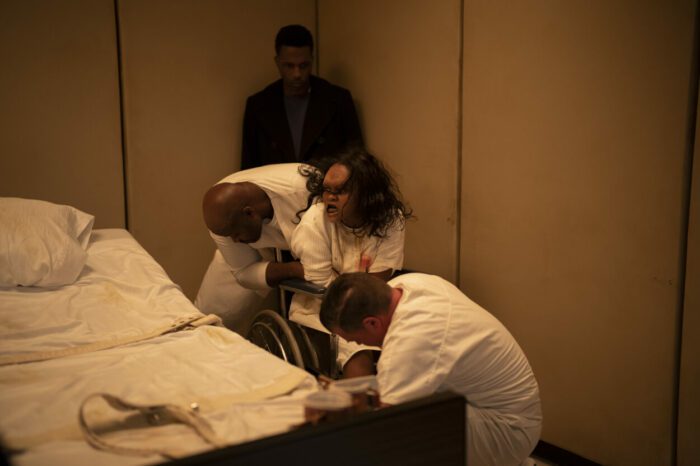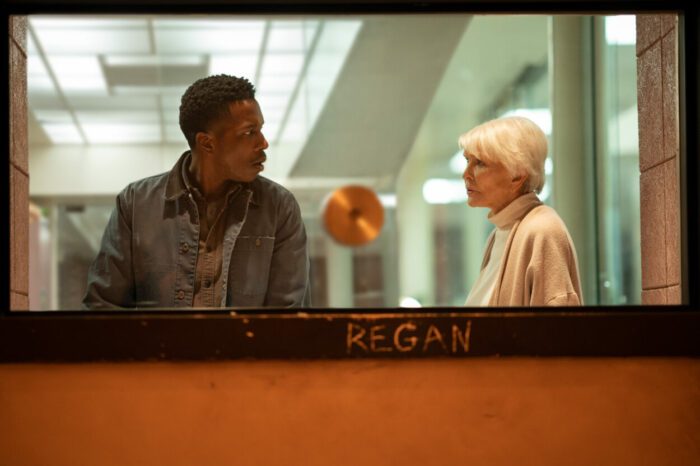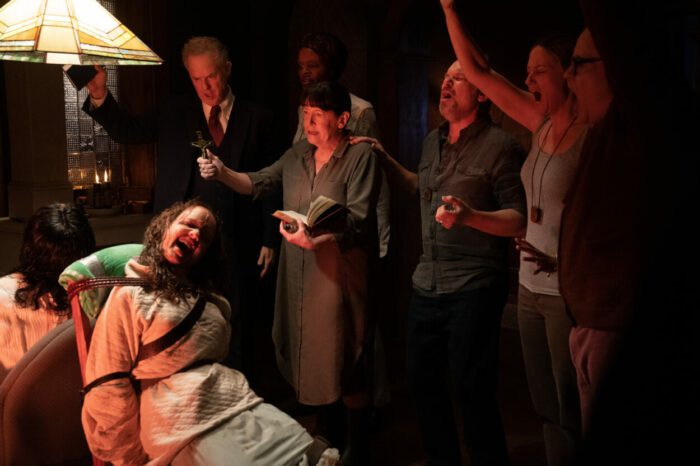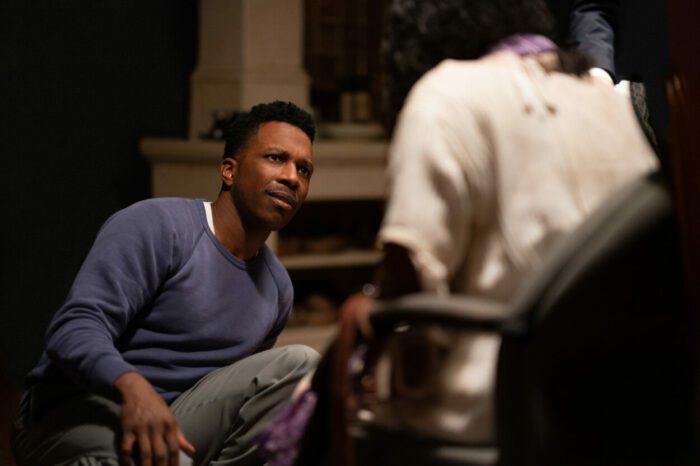The Exorcist: Believer is like a cover band trying to write the next album for the musicians it imitates. Despite similarities, the emulation pales in comparison and offers nothing new. At the same time, it wants to be its own film, full of contemporary values, but never does much more than deliver shallow lip service to notions of diversity and inclusivity. While some scares will satisfy horror seekers this Halloween season, The Exorcist: Believer isn’t good enough to warrant the sequel that’s already planned.
The story opens well enough. Following the tragic death of his wife, Victor Fielding is doing his best to raise his thirteen-year-old daughter Angela alone. One day, she and her friend Katherine venture off into the woods. After disappearing for three days, the young ladies return and quickly begin to exhibit disturbing behavioral changes. When science cannot explain what’s happening, Victor must reluctantly accept the supernatural truth that his daughter is possessed. He then turns to friends and familiar franchise faces to perform a dangerous exorcism which may or may not save the young ladies.

One huge problem is this attempt at demon scares squared. Having two people in peril never really raises the stakes or alters events in any significant way. It typically just means cutting back and forth between possessed people. It’s a lot of hats on hats. During the exorcism itself, the camera jumps from one to the other for dialogue that could have easily been one person. Furthermore, the movie only spends time establishing the character of Angela. There’s no reason for the audience to care about Katherine. Consequently, her suffering borders on torture porn; its only purpose is to shock.
That lack of character exploration is prevalent throughout The Exorcist: Believer. When friends and neighbors come together to help, a viewer is left wondering why these people are so invested. The film bluntly tries to make a point about people coming together in times of crisis, but it feels too forced to come across as plausible or genuine.
Worse, most of these characters act as if they had no choice. The movie pretends this is because helping is the right thing to do. However, it seems more like plot necessity punching the audience in the face with a message about community.

Ellen Burstyn returns as Chris MacNeil. The role does nothing except contrive a connection to the 1973 classic. Bound together by this thin thread, The Exorcist: Believer tries to throw in some clunky feminism. However, Burstyn complaining about patriarchy sounds more like buzzword banter than genuine insights into the wrongful exclusion of women from religious hierarchies.
This is a recurring problem with Believer. It wants to inject contemporary notions of diversity and inclusion but never really follows through on its efforts. Characters talk about needing more than Christianity to fight demonic possession. Yet, when the time comes — spoiler warning — the exorcism boils down to everyone standing around chanting Jesus. Although mention is made of Jewish and Muslim rituals for battling possession, no one in this coterie of demon defeaters even tries to call in someone from those two faiths. Essentially, The Exorcist: Believer suggests diversity, feigns inclusion, then settles into Christianity to the rescue, undermining its own message in the process.
Dialogue at such times can occasionally cause an eye roll. I laughed out loud at one or two lines which I won’t spoil, but Jeff Dabe is less heavy handed. Certain exchanges make this horror movie feel like a very special episode. But what’s worse is that interesting possibilities which could’ve gone a long way towards redefining the possession subgenre through inclusivity and diverse representation go nowhere.

The young women playing the possessed, Lidya Jewett and Olivia Marcum, do a marvelous job. Especially in the throes of demonic torment, they are unsettling to behold. Amazing makeup effects certainly help, but Lidya Jewett and Olivia Marcum border on being as icon as Linda Blair’s portrayal of possession.
That compounds the shame that their performances are undermined by mediocre sound engineering. The syncing of demonic voices with their mouth movements is frequently noticeably poor. During what should be some of the movie’s most unsettling portions, The Exorcist: Believer calls to mind bad dubbing in a foreign film.
After penning and directing two of the worst films in the Halloween franchise, Halloween Kills (2021) and Halloween Ends (2022), David Gordon Green is back to drag another beloved franchise into mediocrity. Along with co-writer Danny McBride, the two deliver here a solid reason why they need to stop making horror movies. At the very least, stop piggybacking on fan favorites for a nostalgia bait wallet grab.

For instance, there are certain attempts to create scenes reminiscent of the 1973 film. However, here they come across as ridiculous rather than frightening. Though that said, there are occasional scares which inspire brief terror. Some smart cinematic tricks add an unsettling atmosphere at times. Unfortunately, The Exorcist: Believer never summons enough of such moments to ever become truly haunting. Its best frights tend to be jump scares.
The problem overall is there’s no real reason to care about what occurs. Consequently, the movie is a cavalcade of shocking images. Very little contains substance, and so many of the possession scares are from the tired formula for such frights. Hiding behind homage, the filmmakers have attempted to conceal an utter lack of new ideas. This is just another knockoff that somehow happens to have The Exorcist brand label.
The Exorcist: Believer is a reminder that just because someone can play the notes of a classic doesn’t mean they can compose one as well. Perhaps Leslie Odom Jr.’s performance as Victor Fielding sums it up best. He is fabulous at the start, conveying myriad emotions engaging the audience. By the time of what should be an epic exorcism, he often seems bored and waiting for the end. Still, for Friday night frights this Halloween season, The Exorcist: Believer is better than nothing.



